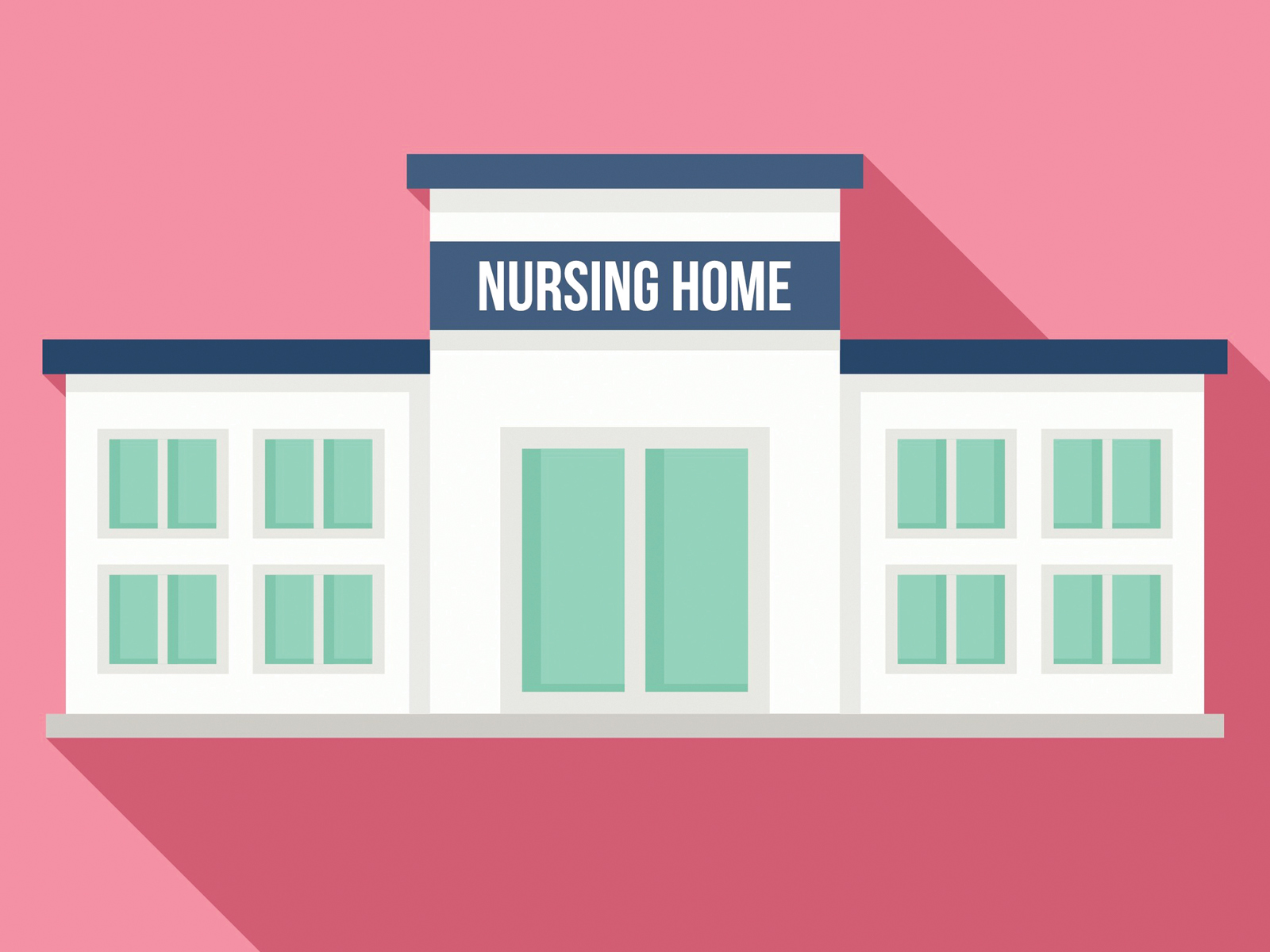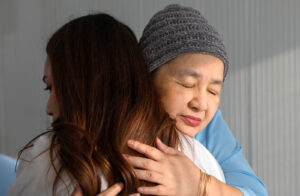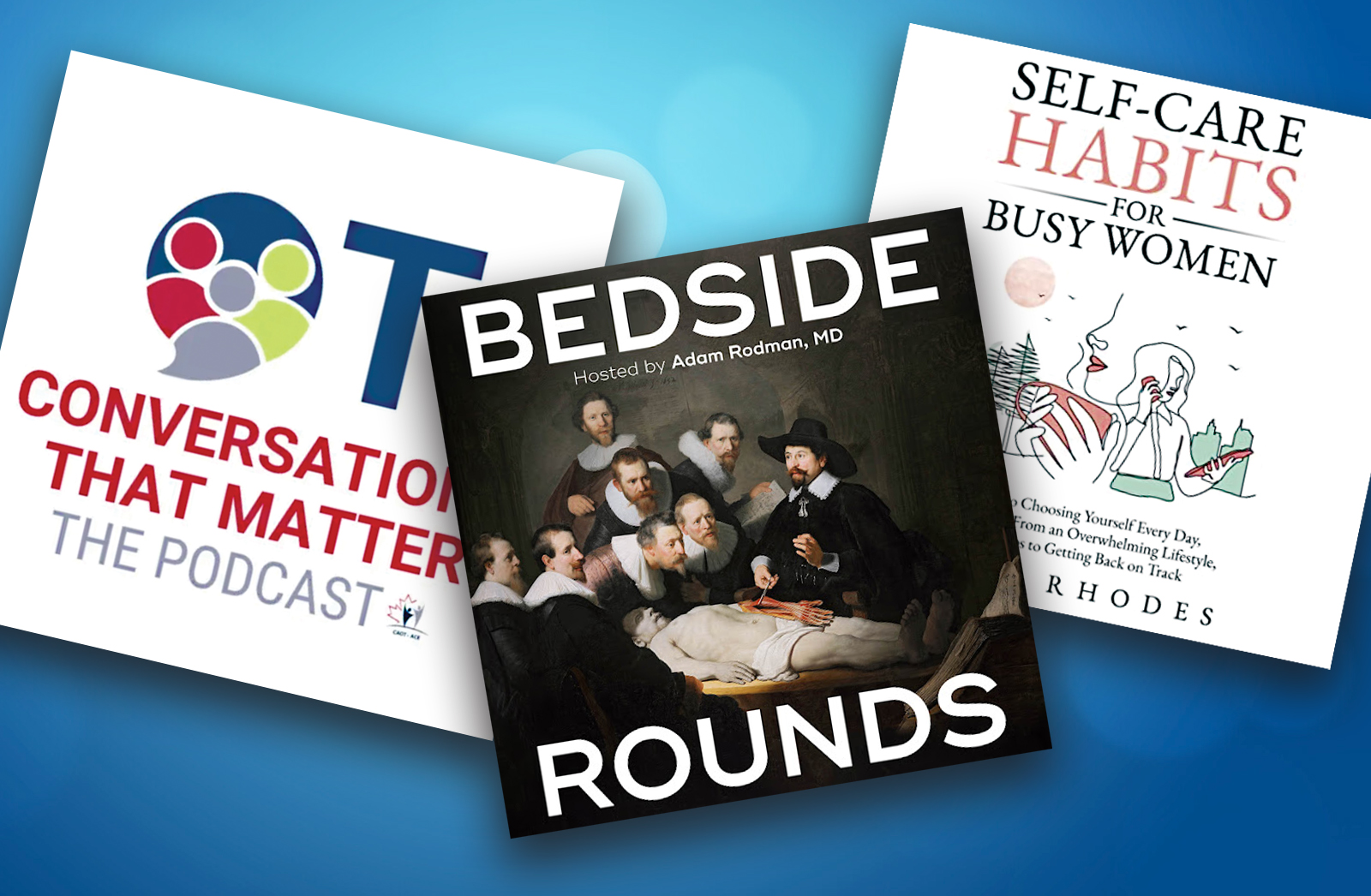By Moira Wyton
André Picard on elder care in Canada. The Globe & Mail reporter’s new book chronicles a long failure, but offers hope for the future. We have all known for a long time that the way we treat seniors in our health care system is terrible. And this was just an opportunity to jump on that topic and use COVID as a launching pad to talk about these larger issues.
André Picard likes to stay busier than most, if his new book is any indication. The Globe and Mail’s health reporter and columnist penned Neglected No More during evenings, weekends and vacations away from his day job as more Canadians turned to him to make sense of the pandemic unfolding around them. But he was not interested in writing about the pandemic just yet—“the important book about COVID will probably be written in 10 or 20 years.”
Picard wanted to ask different questions. And there were big ones to answer, as thousands of elders and residents of long-term care died during the pandemic’s first wave. To date, at least two-thirds of the 21,905 people who have died of COVID-19 across Canada lived in long-term care or assisted living facilities.
“What kind of excuses do we make to ourselves as a society that this is acceptable?” asks Picard. The failures of elder care in Canada, Picard argues, began long before the novel coronavirus arrived. Readers may be surprised that he forgoes lambasting the easy villains in the devastating crisis—for-profit care providers, “bad apple” care staff—in service of a deeper indictment of Canada’s refusal to value elders in life, as well as in death.
Ten months after we first spoke about health reporting, I reached Picard by phone in Vancouver, where he is spending the winter as an Asper Visiting Professor at the University of British Columbia. We discussed the difficulty of writing about people who often can not speak for themselves, what accountability for these preventable deaths could look like, and how his optimism that the pandemic will be a turning point for elder care has managed to stay alight.
Wyton: You wrote Neglected No More during the pandemic, but it is not really about the pandemic at all. Where does this story begin for you?
Picard: If you are worried about health care in Canada, you have to write about elders and you have to write about older people, because that is who uses the vast majority of care, so I have always been interested in this issue. And to me, we know that COVID has shone a spotlight on a lot of failings. We have all known for a long time that the way we treat seniors in our health system is terrible. And this was just an opportunity to jump on that topic and use COVID as a launching pad to talk about these larger issues.
Wyton: With the pandemic, we have seen a rise in opinions about COVID-19, saying, “Oh, it is not that bad, it is only killed people who are quite elderly.” Does this attitude amount to ageism and discrimination?
Picard: I think there is no question that our public policies are just rife with ageism, it is just ingrained. What other people in society do we send off to live in these prison-like facilities? And again, I think COVID sort of highlighted this, as you mentioned, with all the people just saying, “Oh, they are old, they were going to die anyhow.” That is just an appalling thing to say. Not only is it not true, but it is appalling in itself.
And I think something like COVID, what happened in our home care—our long-term care system, specifically—is this perfect intersection of ageism, sexism and racism. The vast majority of workers are racialized. The vast majority of people living there are women. They are not just older, but they are women. It is these three marginalized communities coming together in one spot. It is just like triple the bad treatment. And so that is why it is a lot of focus on the homes, because there is just so much wrong with them.
Wyton: How do we as a society, and as journalists, even begin to address ageism, sexism and racism in elder care?
Picard: I think the starting point has to be a pretty profound philosophical shift. The countries that treat their elders the best have a philosophy that we do not. You have to have that fundamental starting point… that you are going to do everything in your power to keep people in the community and have a dignified life.
Now, we have a policy where the default mechanism is once you get a little sick, you can not live in your own home, we shoot you off to this home, out of sight, out of mind and out of dignity. There are good homes, I repeat that many times in the book, there is lots of good care. But should people be there in the first place? That is the larger issue.
I think we have to ask ourselves this really profound question about what kind of excuses do we make to ourselves as a society that this is acceptable. And it is an uncomfortable question to ask because I do not think there is a good answer to it. It is pretty appalling what they are doing, and we have to confront it.
Wyton: As you write in your book, better care is possible. How do you think those in charge of elder care can learn from other cultural perspectives and from what we are already doing for some people like veterans?
Picard: We can learn a lot from cultural diversity. Respect for elders is what it comes down to in a lot of cultures. You would not dream of sending your grandparents off to live somewhere else. But the flip side of that is there are realities of modern life. Regardless of your culture, I would think one issue that cuts across every culture is we should respect older people…for the knowledge of what they have given us, their sacrifice.
I use the Sunnybrook Veterans Centre example. If it is good enough for veterans, why is it not good enough for everyone? But before we do that, we should also make sure that only people who need to be in the home are there.
Wyton: Over the last 11 months, for-profit care has been like a universal punching bag, being blamed for many deaths. But you are a bit easier on for-profit care providers, pointing out that issues stem elsewhere.
Picard: I decided deliberately to not write a lot about that, because I just think it is almost a dogmatic political issue. I think there are some good private homes and some good public homes, and some terrible public homes and some terrible private homes.
Now, that being said, if there is no private care in Canada, will we be any worse off? No, I do not think we need it. I think it is been there for so long, it is hard to get rid of it. And I think we would serve ourselves better to understand why it is there, rather than just saying “get it out now.” I just think there is a lot more to resolve before privatization. To me, the worst thing is not privatization in itself. It is that we have a bunch of owners who are essentially property managers—they are not care providers.
I understand why people are angry at private care when the data is yes, more people died in private homes. But again, there are explanations for that: the homes are older, they are bigger, they have different clientele. So, what do we do with these “excuses?” We ask what happened there, but it does not make it right. I just think that it distracts from doing other things that have to be done much more urgently.
Wyton: You spoke to a number of staff and personal support workers in care facilities for the book. What stood out to you from your conversations?
Picard: I think people will be surprised at [the number of] people who are really dedicated to this work and really want to do better. And I would say what would surprise the public is that the staff are just as angry and frustrated as families and recipients of care. People really want to be able to have time to care, and they do not. So they leave their shifts, and they are angry at themselves that they just could not do what they know needs to be done… because there are no hours, they do not have the equipment, they do not have the time.
Wyton: Does this make you think differently about what you wrote or the capacity of the elder care sector to have learned and enacted changes during the summer’s lull in cases?
Picard: To me, the most frustrating and angering thing I see comes where they have now had two and three outbreaks. How can you not learn from that? Fifty people die in your home and then you bury them, and then you make the same mistakes? It just seems so unthinkable.
And I think the larger [issue], the one we have known all along, is the way to prevent cases and deaths in long-term care is to get control in the community. That has been our biggest failure, because we just never got control of the pandemic within the larger community. The homes are not isolated. We can do our best to isolate them, but they are not ever going to be isolated from the community. We forgot that the way to solve this was to solve the larger problem of the virus.
The second part is, we could have done better on testing. We know we banned workers working in more than one home. But there were exceptions to that rule every day. The locking out of caregivers—it is a big mistake to the degree and the length of time we did it, it is just horrible. People suffered a lot from the isolation and the loneliness, as much as from the pandemic. We should have found ways to make it safer for caregivers because they are so essential to the care.
And then the big one is: we never solved the fundamental problem of the labour issue. There are just not enough bodies in there to provide the care. The lack of good care makes it easier for diseases to spread and more people working with large numbers of people… you have them being less cautious because they are in a hurry.
All these things all feed into each other. I hear from families every single day about how frustrated they are, and you can not argue with them. It is awful, what is still going on.
Wyton: In the beginning of the book, you said you were skeptical that there would be any accountability for the mass deaths of vulnerable seniors that we have seen. Why is that?
Picard: We are not ever good at accountability in Canada, because we do not have a system. Nobody is really in charge. It is hard to figure out who is accountable [and] there is a structural way of avoiding any accountability, which is unfortunate. What we have to focus on is building a better system, so it does not happen again.
Wyton: What might accountability look like in that better system?
Picard: On the ground, at that level, we need better inspection, better regulation. But I try to be careful to say not more regulation, because we have so much regulation and people work in these homes, but they do not measure the right things. We make sure that the fridge is exactly at the right temperature, but there is not really any measure of quality of care. So you are going to have someone wallowing in their feces for 10 hours, and as long as their milk is the right temperature, the home passes with flying colours.
And then there has to be political accountability, and I think that the political accountability comes from putting someone in charge. A lot of these elder care issues go across four or five ministries in most provinces, and no one is really in charge and there is a lot of buck passing. I am a big fan of having a serious ministry of seniors, or of elders, or whatever you want to call it, and put them in charge and make sure they are accountable.
BC stands out in that it has the seniors advocate. I think that is a really good step, even though she does not have any power. But she does have at least the ability to kind of embarrass the government and put them on the spot, so there is some accountability there.
Wyton: When I asked you in April whether you thought the pandemic would trigger structural changes to health and social safety nets, you said no except for “some hope on the seniors’ care side, just because it is so, so devastating.” Are you still optimistic things will change?
Picard: I think there is a real opportunity to fix things. I think there has to be a certain amount of guilt in politicians, and seeing how horrible this is, and wanting to fix it. So yes, I do have some hope. I despair at the fact that it took this much to make us even talk about change—it should have never come to this. When we see countries that have zero deaths in long-term care, you just shake your head and say, “Why? Why couldn’t that be asked of one of the richest countries in the world? Why do we have this kind of carnage?” I am hopeful, but I think hopeful with an asterisk on it.
Wyton: You have been open that your parents both lived with dementia in long-term care. What is the personal impact of this reporting for you? Is there a part of this process that stays with you?
Picard: First of all, I am old. So that gives me a personal stake in this, I am getting up there in age. But on a more serious note, anyone who is had parents who have gone through “the system,” who has had parents with dementia, with these chronic illnesses in long-term care, they lived these frustrations. And they stay with you, they anger you, and that anger never really goes away.
Wyton: One of the first lines I highlighted in the book when I was reading was you saying that an aging population is a success, and it is something to honour and to cherish in our country. What would be an indication to you that Canada is moving in that direction?
Picard: The way to honour people is to make sure they live in dignity, that they live where they want and how they want. Once that becomes the guiding principle, everything flows from that. We just do not have that principle. We talked about this respect of what veterans have given, the sacrifice. And not to undervalue the contributions of veterans, but that applies to that entire generation. They have made sacrifices that we have built on, and we owe them. They have paid their taxes for 40 and 50 years. And now it is time to cash in. We are already reneging on that basic social contract in a really horrible way.v
Moira Wyton is The Tyee’s health reporter. Her reporting beat was made possible by the Local Journalism Initiative.














